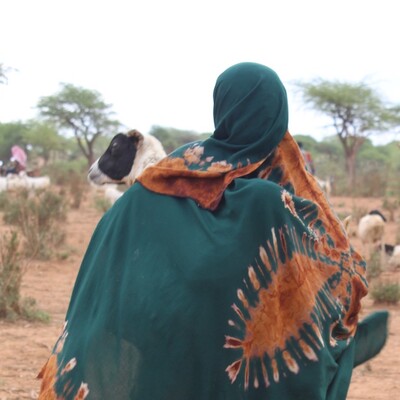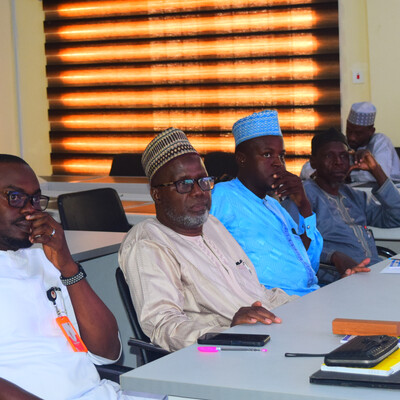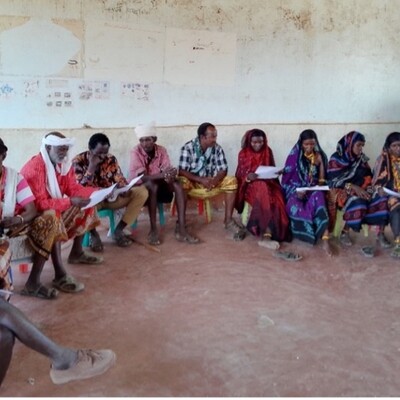
Joint PASTRES-ILRI policy workshop offers a vision for the future of pastoral development
From March 6-8, PASTRES and ILRI co-hosted a three-day workshop titled ‘Pastoralism, Uncertainty and Development Policy’ at ILRI’s Addis Ababa campus to explore how development policies can be made more flexible to better address the inherent uncertainty within pastoral systems. At the end of the three days, a final panel discussion titled ‘Ways forward for pastoral development and policy’ was held to synthesize the workshop’s learnings from previous sessions and determine how to carry them forward. ‘It has been a successful event discussing many themes with many experts, and today we are focusing on how we can bring it all together to determine a way forward’, said Ian Scoones, the session moderator.
Consistent with the rest of the workshop, the panel discussion centred on four key pastoral themes: mobility, land and environment, markets, and social protection and insurance. Participants were broken into four groups, each focusing on one of the four major themes, to discuss the relevance of the research findings presented on the first day of the workshop and their implications for pastoral development policy and programs.
Annabelle Powell, program manager at Acting for Life, spoke on behalf of the mobility group. Mobility is fundamental to how pastoralists manage uncertainty, allowing them to respond to changing climatic conditions and take advantage of shifting market opportunities as they arise. With that in mind, Powell outlined necessary steps to safeguard pastoral mobility moving forward, including mapping grazing routes and resources, supporting innovations that improve pastoral access to services and integrating systems that help pastoralists access markets (such as mobile banking systems). To achieve optimal success, these steps must be taken in conjunction with ‘a broader reframing of how we think about service provision’—as not always static but adaptable to the needs of mobile pastoral groups—said Powell.
Ryan Unks, a PASTRES post-doctoral researcher, then spoke on behalf of the land and environment group. Unks encouraged policymakers and other decision-makers to view pastoralists not as ‘using’ land but instead as ‘being with’ land. Such a narrative shift would help broaden perceptions of what land conservation encompasses and ‘encourage policymakers to view pastoralists as conservation experts that we should be collaborating with and learning from’, said Unks. This is a necessary step towards improving policy design and implementation to better accommodate pastoral production systems and their uniquely beneficial relationship with the environment.
Guyo Roba, head of the Jameel Observatory based at ILRI’s Nairobi campus, then spoke on behalf of the markets and livelihoods group. He began by highlighting the incredible volatility in markets for pastoral goods, noting how camel milk has evolved from a taboo to a budding business as well as the dramatic changes in the market value for sheep wool. In this way, ‘there is no ‘the’ market, but a variety of market arrangements that change from region to region and from time to time’, explained Roba. Market policies seeking to improve pastoral livelihoods must therefore account for the local context and market dynamics. Similarly, Roba believes that policy frameworks need to do a better job of accounting for pastoral goals and challenges in the marketplace which they have often overlooked in the past.
Finally, Masresha Taye and Tahira Shariff Mohamed, postdocs with the PASTRES program, spoke about social protection and insurance for pastoral communities. They noted that ‘there is currently a mismatch between how the state provides support and what actually makes sense for pastoral communities’. For example, the state currently provides fixed-place delivery of social services, but pastoralists are always on the move; similarly, the state wants to provide insurance to individual households, but pastoralists commonly work as a collective and pool resources. To address these discrepancies, we must develop social assistance programs that are collective, mobile and flexible. The state should also work to provide asset protection for pastoral groups through breeding programs, veterinary services and supplemental feeds.
Despite the unique challenges in each thematic area, a few key themes ran throughout the panel discussion. Perhaps most significantly, each group found a large gap between pastoral research and its translation into policy and practice. As a result, policies and interventions, even those that are well-intentioned, often undermine pastoral practices on the ground. There exists a similar gap between policy formulation and implementation. Overcoming these gaps will require a better understanding of who actually implements pastoral policies, the policy constraints and how we can adapt our narrative to better influence policy design and implementation. Additionally, there is a need to link pastoral development to broader development agendas, such as One Health and the UN Sustainable Development Goals, as well as to national and global policy forums.
The event then concluded with a final panel of four commentators—each from very unique backgrounds—who provided key insights into the panel discussion. Dr Shahid Choudhary, a senior public official in India working on pastoral issues, was the first to provide his thoughts. ‘Pastoral communities are the most vulnerable to climate change, disasters, economic exclusion and other issues’, said Choudhary. To better protect these communities, they need to be placed at the centre of development policy research. Building on ideas from the panel discussion, Choudhary also argued that ‘pastoral communities need to be better integrated into political systems where they can have a say in the issues that impact them’.
Sargai Sha, a conservation officer with the Nature Conservancy China program, was next to speak. She reiterated the need for a new narrative that appreciates pastoralists role in promoting conservation and biodiversity. ‘Rather than excluding pastoralists, we should be promoting the ways pastoralists contribute to the sustainable use of nature’, said Sha. Building on the theme of inclusion, Sha also noted that ‘empowering pastoralists through inclusive dialogues and collaborations is vital’, especially when it comes to good policymaking.
Michael Odhiambo, an independent consultant working on pastoral policy in East Africa, also focused on the importance of inclusion. To better integrate pastoralists into policymaking systems, we first need to overcome the gap between ‘what pastoralists actually do and how policymakers interact with them’, explained Odhiambo. This begins with strengthening pastoral citizenship. ‘Pastoralists are first and foremost citizens of their countries—they have citizenship rights, including the right to practice their livelihood’, said Odhiambo. Moving forward, governments and policymakers need to implement policies on the ground that accomodate pastoralists’ inherent rights as citizens.
Verdiana Morandi, part of a pastoral sheep herding family in northeastern Italy and founder of APPIA, the Italian Pastoral Network, was the last to speak. Pastoral communities around the world face many of the same challenges—’even if latitudes change, the problems remain the same’, said Morandi. For this reason, ‘pastoralism needs a concrete, inclusive framework on which we can build and take pastoralism into the future’, she continued. To achieve success, this framework must recognize pastoralists for what they are—community members, food providers, GDP elevators, land use enhancers and entrepreneurs that provide a variety of social, economic and ecological benefits not only for their communities but for the world.
As the event drew to a close, Scoones provided one final take-home message: ‘Each of the four areas we have discussed brings a massive number of questions as well as potential ways to move forward... So we have a lot of work to do, but these discussions have offered us a pathway into the future.’




















